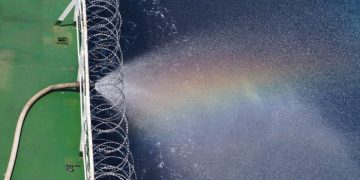Marine autonomous systems to monitor ocean environment
The latest Small Business Research Initiative (SBRI) competition was launched at the NOC in Southampton - making £1.5 million available to UK businesses to develop novel adaptive autonomous ocean sampling network (AOSN) management systems. The competition, run by the Natural Environment Research Council, in partnership with the Defence Science and Technology Laboratory (DSTL) and Innovate UK, will see funds made available to assess and develop novel adaptive autonomous ocean sampling network (AAOSN) management systems. These systems will need to be capable of coordinating a suite of marine autonomous systems, enable the gathering of data from the ocean over periods of several months and have the ability to track and sample dynamic features. The competition will run in two phases: phase one opened on 2 September for feasibility studies, with contracts to be awarded, for those selected, in mid-December and completed by 31 March 2015. Up to five phase one studies will be funded up to a cost including VAT of £50,000 each. After a review of the outcomes of the phase one studies, selected participants will be invited to apply for phase two for the development of prototypes, which would be capable of undertaking demonstration missions at sea. It is ...
Read more


















































